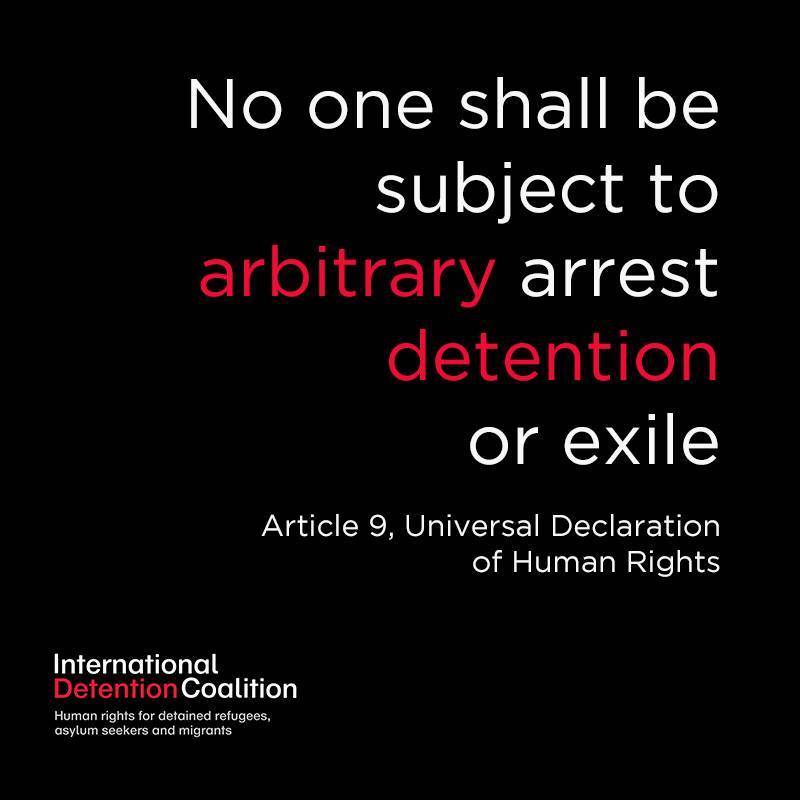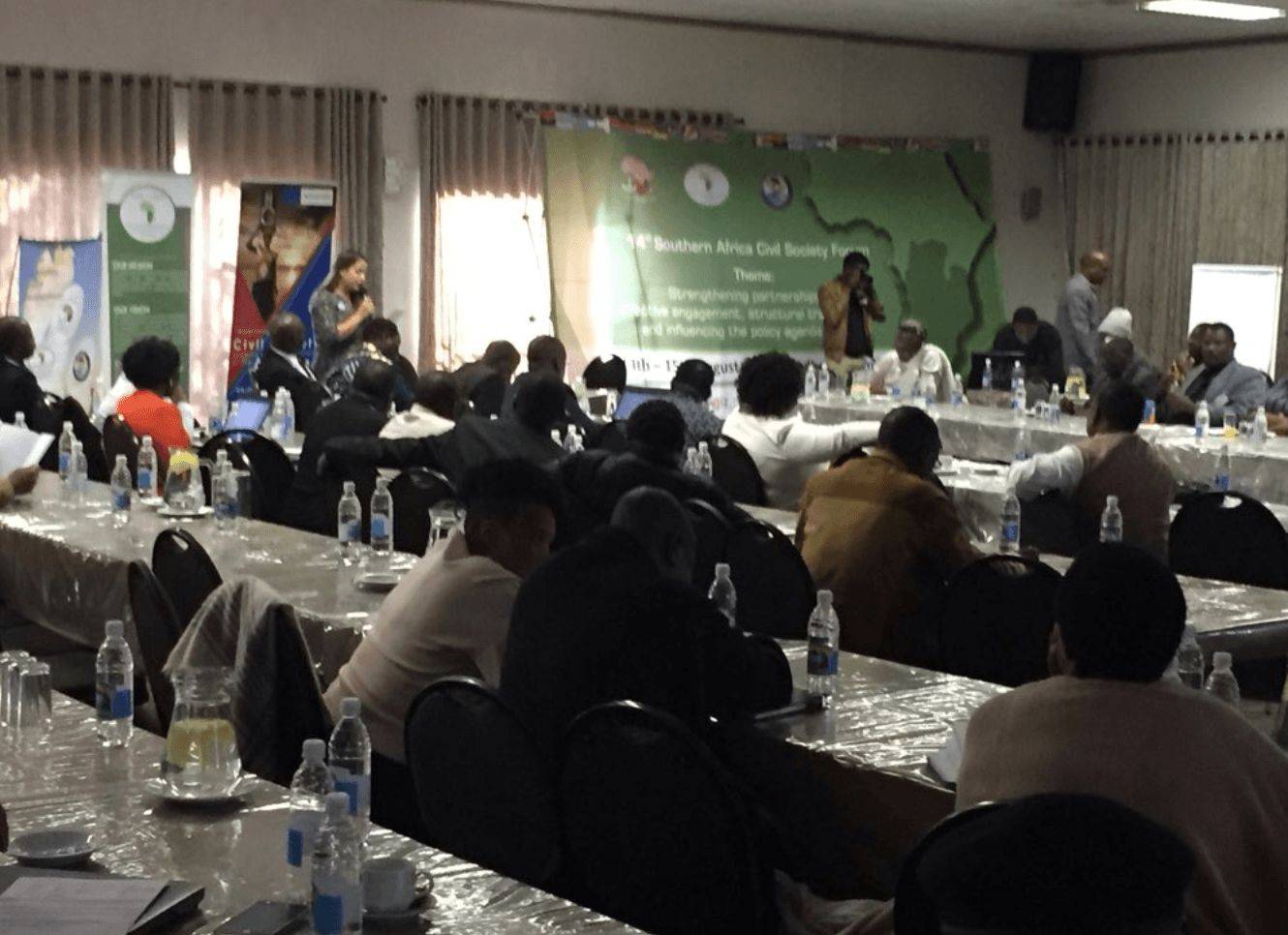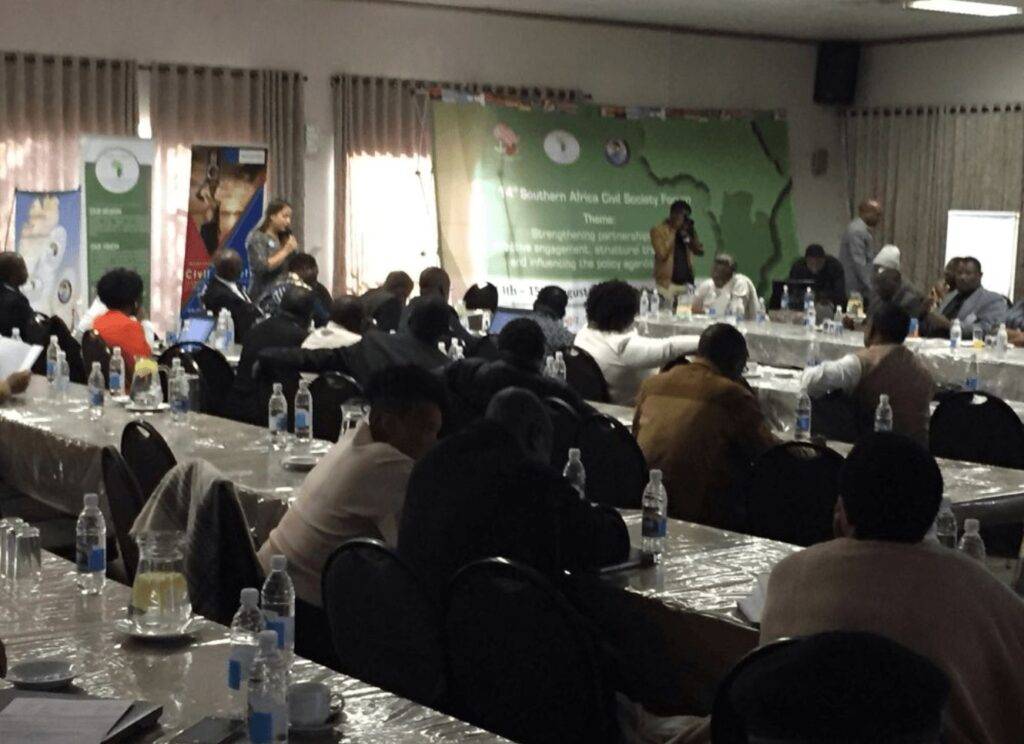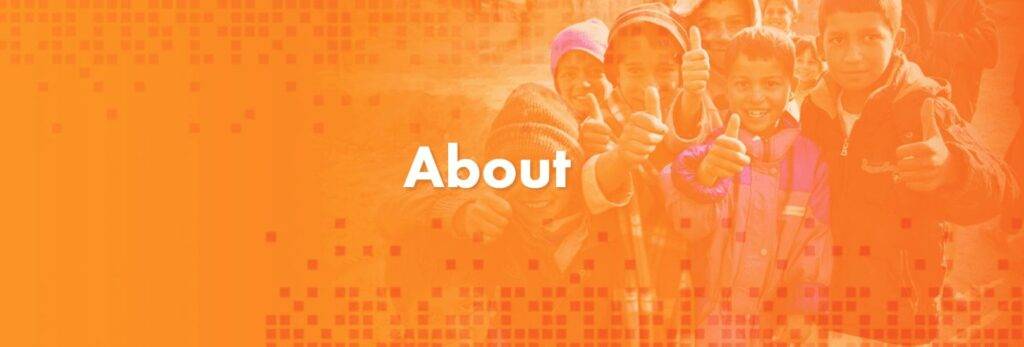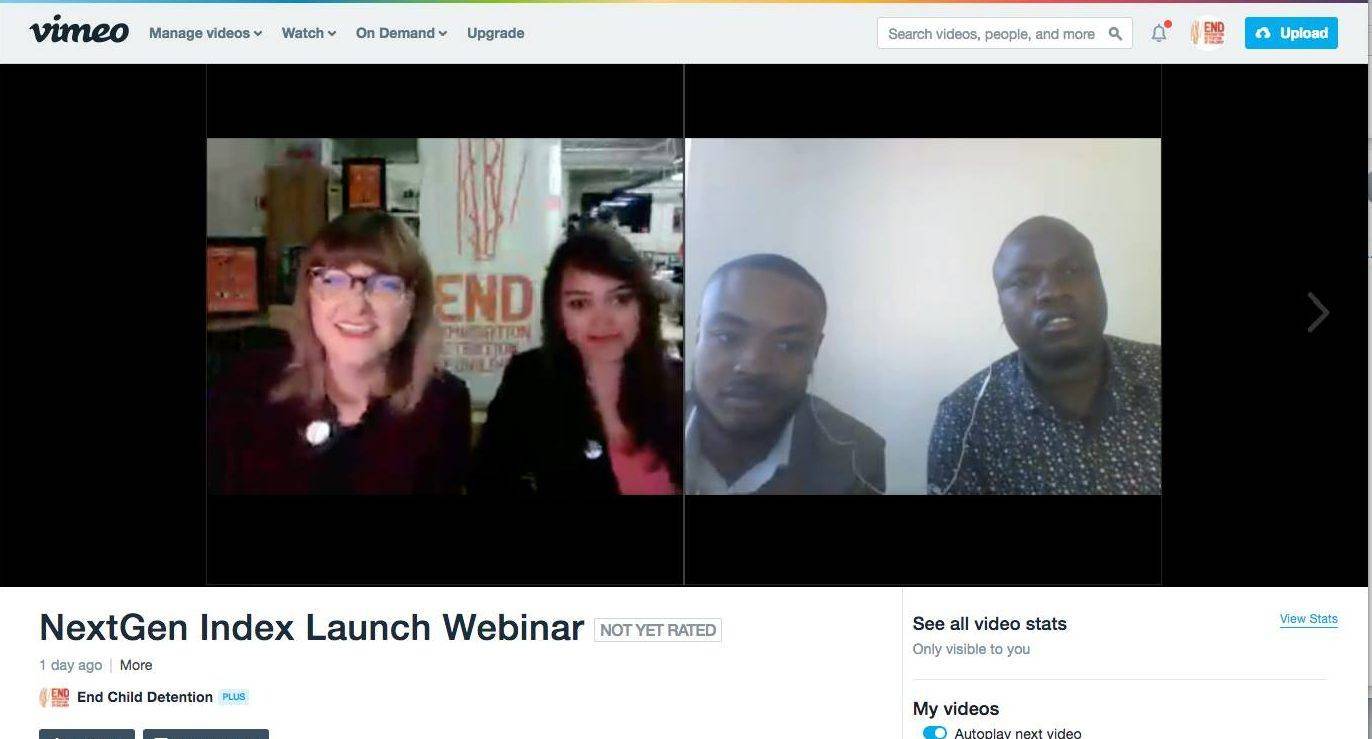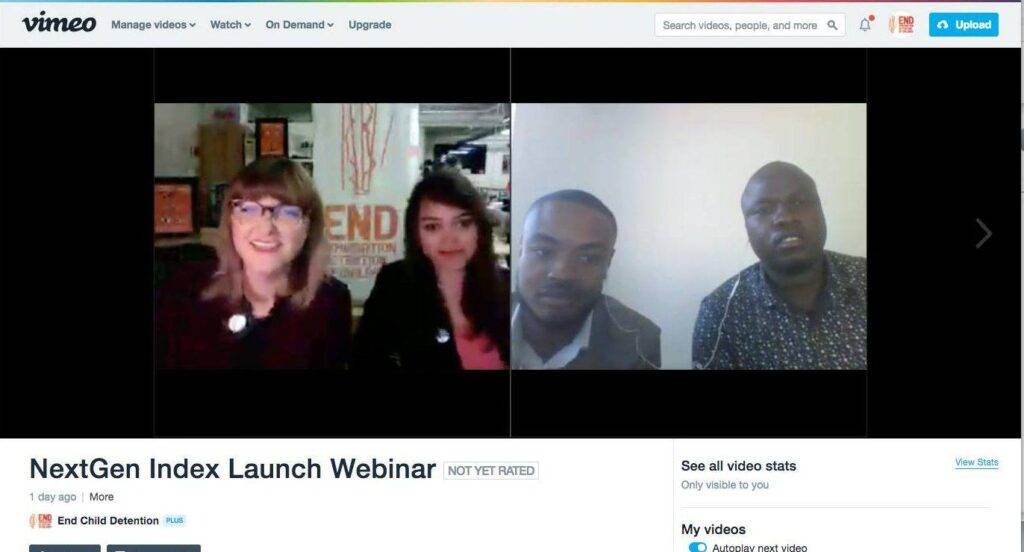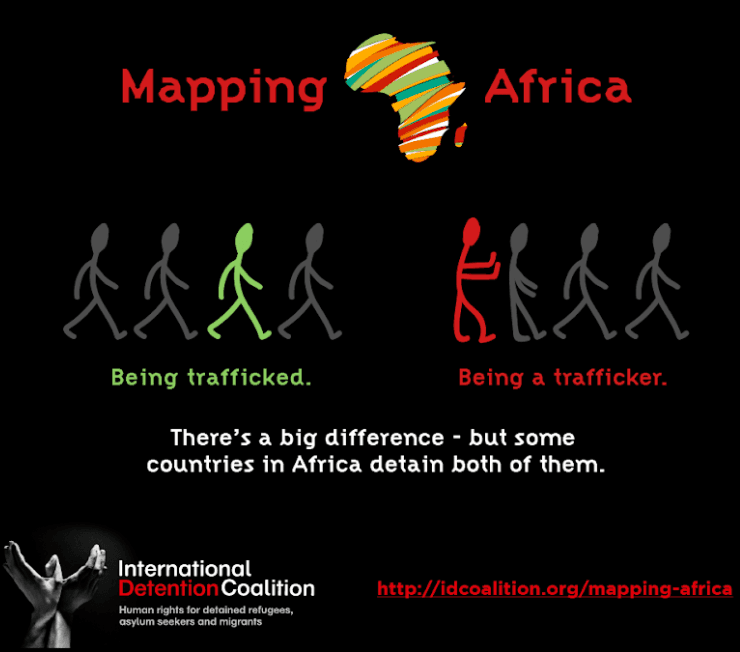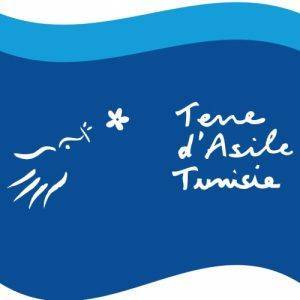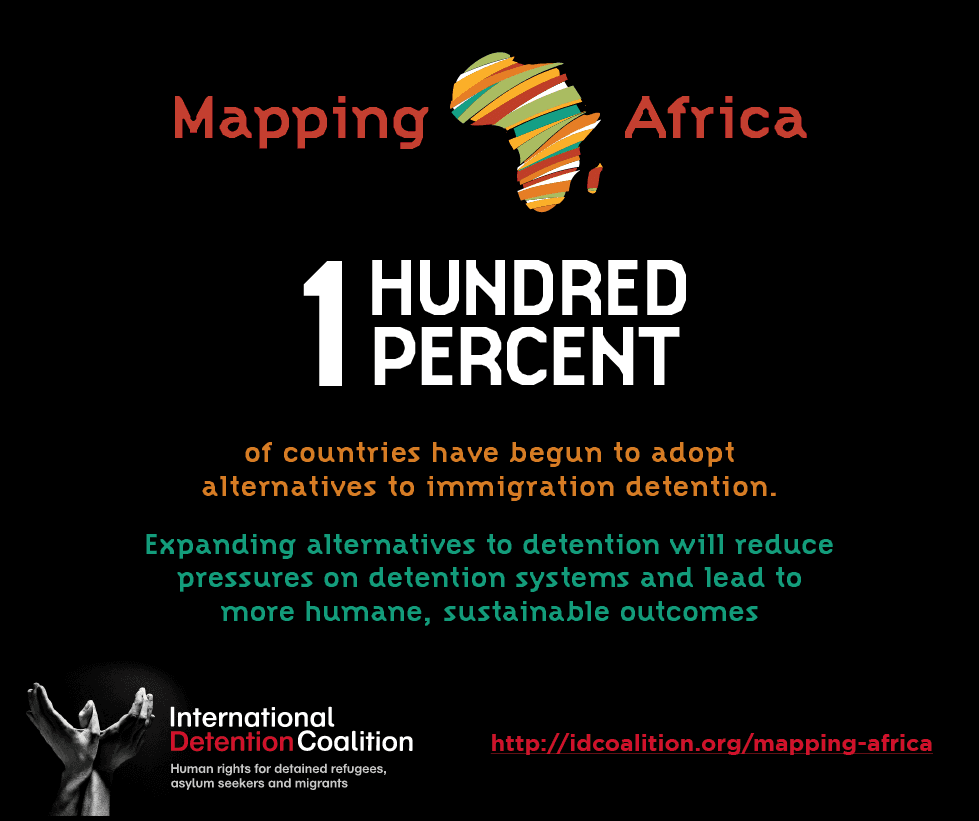ACHPR Panel Discussion: Preventing Torture in Africa
In October, 2018, the IDC will be attending the 63rd Session of the African Commission on Human and People’s Rights (ACHPR) in Banjul, Gambia.
The IDC will be speaking alongside ACHPR Commissioner Essaiem Hatem, the Chairperson of the Committee for the Prevention of Torture in Africa, and his Co-Commissioner Maya Salih-Fadel, who is the Special Rapporteur on Refugees, Asylum Seekers, Migrants and Internally Displaced Persons on a Panel Discussion on the ‘Situation of Migrants at Risk of Torture, Inhumane and Degrading Treatment in Africa : ways to Prevent Torture and Reduce the Risk’.
Across Africa, wherever there is a lack of access to regular migration pathways, migrants are undertaking dangerous journeys to try and ensure their own physical safety and the opportunities required to support their families and meaningfully contribute to society. Many migrants, especially those traveling irregularly, are subject to torture, inhumane and degrading treatment, both during their journeys and if they are apprehended and detained.
It is understood that state agents can become overwhelmed by the need to control their borders, whilst still upholding human rights standards with respect to all persons, including migrants, at their borders and within their territories. New thinking and alternative approaches are necessary.
The IDC will share insights from African civil society and non-government organisations in order to draw attention to this important issue and to encourage States to take concrete steps towards the prevention of migrant torture and exploitation.
If anyone is interested in contributing to shaping the content of the panel, please be in touch – [email protected]
Seeking Suggestions for IDC MENA Study Visit
Between now and end of year, the IDC is hoping to capture some of the learning about how Middle East and North Africa (MENA) governments have managed to host large numbers of refugees and migrants since the onset of the Syrian ‘crisis’, without resorting to the widespread use of immigration detention.
The IDC will undertake a study visit in late 2018, with a focus on Lebanon, Jordan and Egypt.
The visit aims to document how alternatives to detention, especially case management, have been explored, developed and implemented en mass.
Case management is a comprehensive and systematic service delivery approach designed to ensure support for, and a coordinated approach to, the health and well being of people with complex needs.
The visit will explore what is working, what fits the local context, what doesn’t and why?
Do you have suggestions of alternatives that we should profile? Please get in touch!
Email: Middle East and Africa Regional Coordinator [email protected]
NextGen Index Launched at Southern Africa Civil Society Forum
Alternatives to detention were highlighted at the 14th Southern Africa Civil Society Forum which took place in Namibia on August 13 - 15, 2018.
Liesl Muller from IDC Member, Lawyers for Human Rights, launched the NextGen Index Scorecards for Southern African states.
The NextGen Index is a comparative tool that ranks States on their progress in ending child immigration detention. The Index uses a standard scoring framework to assess the key factors that ensure national migration management systems are sensitive to the needs of children and, importantly, avoid child detention.
The scoring framework analyses the strengths and weaknesses of current systems in protecting and respecting the rights and best interests of the child at all times, regardless of their migration status. Scorecards are accompanied by tailored recommendations on how each country can improve their scores in the future. National scores will be updated each year to track a country’s progress over time.
States from Southern Africa in the NextGen Index included:
- South Africa - score of 39 points
- Malawi - score of 32 points
- Zambia - score of 52 points
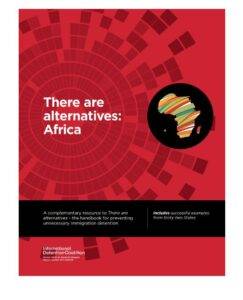 The latest IDC research, The African edition of There are Alternatives was also shared at this event, providing an overview of alternatives to immigration detention in Africa. Drawing from examples in 32 African countries, the report highlights some of the measures in place that contribute to the effective and humane governance of migration, while avoiding the use of unnecessary immigration detention. It includes a Guide for Policy Makers, which outlines how this research can be of use for States.
The latest IDC research, The African edition of There are Alternatives was also shared at this event, providing an overview of alternatives to immigration detention in Africa. Drawing from examples in 32 African countries, the report highlights some of the measures in place that contribute to the effective and humane governance of migration, while avoiding the use of unnecessary immigration detention. It includes a Guide for Policy Makers, which outlines how this research can be of use for States.
It complements There are alternatives – a handbook to prevent unnecessary immigration detention and builds on IDC’s 2016 report Alternatives to Immigration Detention in Africa.
Zambia Highlighted as Positive Practice in the NextGen Index Global Launch
The new Global NextGen Index ranks how 20 countries treat their migrant children, holding governments accountable to their obligations and supporting them to fulfil their commitments.
A video of the launch webinar is available for viewing here, highlighting positive practice in Zambia:
Featuring panelists from country committees around the globe, and moderated by Leeanne Torpey, Coordinator of the Global Campaign, the webinar shared how countries were scored, important findings, and national advocacy strategies moving forward, featuring:
- Mariane Quintao, Brazil NextGen Committee
- Chando Mapoma and Caphas Njobvu, Zambia NextGen Committee
- Laetitia Van der Vennet, Belgium NextGen Committee
The results of the Index show that it is possible to protect the liberty of the next generation, but it requires action today. Four States from Africa were included in the Index:
- South Africa – score of 39 points
- Malawi – score of 32 points
- Zambia – score of 52 points
- Kenya - score of 63 points
The Global NextGen Index uses a comprehensive framework to assess the use of child immigration detention, assign a score and determine a global ranking.
The index found dramatic variations in how States treat migrant children, with some avoiding detention and others causing irreparable harm.
The two panelists from IOM Zambia, Chando Mapoma and Caphas Njobvu, were able to provide insight into alternatives to detention that have been shown to be effective in a country that has eight land borders.
The two panelists from IOM Zambia, Chando Mapoma and Caphas Njobvu, were able to provide insight into alternatives to detention that have been shown to be effective in a country that has eight land borders. Currently, Zambia does not detain unaccompanied migrant children who are seeking asylum. However, other children, including those migrating with their families, are detained on the basis of migration status.
The Zambian NextGen Committee (right) present at the Global Launch of the NextGen Index
"The Zambian Government has shown a real willingness to work to end child immigration detention, and this is reflected in the results of the scorecard" said Chando Mapoma. He reflected that Zambia had performed well on signing relevant treaties to protect children, and processing, but that the score could be improved by expanding alternatives to include all children, rather than just asylum seekers.
"Whole of society training and capacity building has really been important to ensure change"
Caphas Njobvu has developed the training for the National Referral Mechanism, which provides guidelines to identify vulnerable groups like refugees, victims of human trafficking and children, to ensure that they are not detained unnecessarily or for prolonged periods. "Whole of society training and capacity building has really been important to ensure change" said Njobvu, who highlighted significant processes that support the referral mechanism, such as Best Interest Determinations, which have been developed in partnership with agencies.
It is shown that even short periods of detention seriously harm children’s psychological and physical well-being – the impacts can last a lifetime.
“It doesn’t have to be this way – sustainable and meaningful change must be led by our governments, and this index provides informed examples of how change is possible.”
Global Campaign Coordinator, Leeanne Torpey, says “It doesn’t have to be this way – sustainable and meaningful change must be led by our governments, and this index provides informed examples of how change is possible.”
Statement by Refugee Consortium of Kenya for ACHPR
Statement by Mr. Imaana Fredrick Koome, Program Officer-Advocacy & Policy Development Programme, Refugee Consortium of Kenya (RCK) during the 62ndOrdinary Session of the African Commission on Human and Peoples’ Rights (ACHPR) held in Nouakchott, Mauritania from April 25thto 9thMay 2018
Publication Launch on Alternatives to Detention in Africa
The IDC Africa team launched its latest publication at a side event of the 62nd Ordinary Session of the African Commission on Human and Peoples’ Rights, held in Nouakchott, Mauritania. There Are Alternatives: Africa provides evidence that there is rights-based migration governance is being utilised across Africa already, with potential for significant up-scaling in the current context.
The publication includes case studies from 32 African States. These include laws, policies and practices that allow migrants to live in the community with freedom of movement while their immigration status is being resolved or while they are awaiting removal from the host country.
The launch of the research was joined by IDC members from the Refugee Consortium of Kenya (RCK) and Lawyers for Human Rights (LHR), also of South Africa.
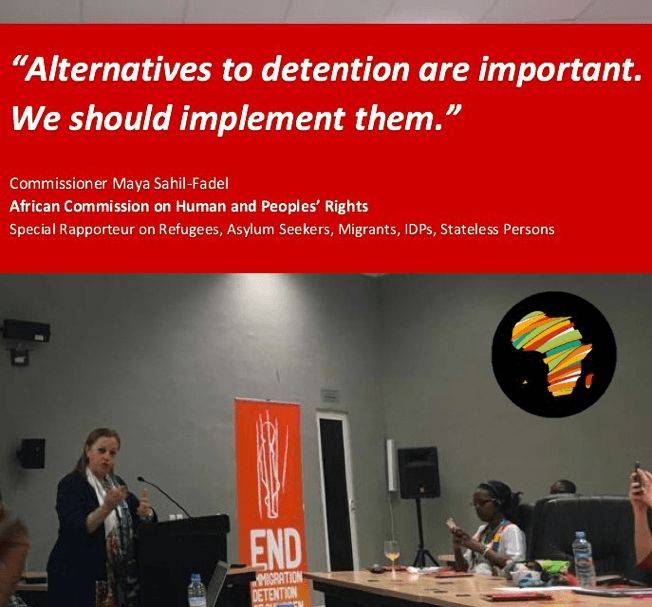
Commissioner Maya Sahli-Fadel, Special Rapporteur on Refugees, Asylum Seekers, Migrants, IDPs, and Stateless Persons, spoke on behalf of the report to further the rights of refugees and migrants together by adopting alternative means to detention. Read her guide for policy makers, an introduction piece for handbook. The French translation is available, here.
The presentations made during the launch of the research centred on the protection of migrants and identifying opportunities for shared regional approaches that assist in reducing the need for unnecessary immigration detention.
In highlighting positive examples of domestic and regional law, policy and practice, Governments can provide effective & humane migration governance systems that respect rights.

The case studies detailed in this report include a range of alternatives implemented by civil society, governments or a combination of both. Collaborations have been shown to be particularly effective at resulting in positive outcomes for migration governance and migrants. The case studies were gathered by IDC staff between January 2017 and January 2018. More than 25 Member organisations and 50 government representatives were engaged in multiple sessions, and follow up programming work has taken place since in Malawi, Zambia and South Africa.

IDC Regional Advisor, the Refugee Consortium of Kenya, Koome Fredrick Imaana, sharing positive practice from Kenya
This recent handbook builds on the work published in Alternatives to Immigration Detention in Africa, 2015-2016. This research details legislation, policies and practices related to immigration detention in six countries: Egypt, Kenya, Libya, South Africa, Tanzania and Zambia. It complements There are alternatives – a handbook to prevent unnecessary immigration detention.
Read the latest revised report here!
For more information, email [email protected]
Alternatives to Immigration Detention in Tunisia
Refugee and migrant case management in Tunis
In an interview with Sana Bousbih from Terre d’Asile Tunisie, we explore the case management system and referral network currently operating in Tunis.
IDC: How do you determine the level of case management needed for a migrant?
SB: After an initial screening of migrants who visit us at the “Maison”, one of our resident caseworkers conduct an in-depth needs-assessment interview in order to evaluate the individual’s level of vulnerability, strengths or resilience. The caseworker classifies the case as “Green” or “Red”. “Green” flagged cases indicate less-intensive case management such as administrative support. “Red” is the emergency protocol in which one of over 20 specialised partner NGOs are mobilised.
IDC: What are some examples of Terre d’Asile Tunisie’s referral partnerships?
SB: If the visitor is identified as a victim of trafficking at the "Maison", the individual is immediately referred to the Anti-Human Trafficking Office, part of the National High Authority for Combating Human Trafficking in Tunisia. Since November 2017, sub-Sahara African Embassies have been involved with the referral mechanism and by mid-2018, the system will be formalised. If the visitor needs emergency housing, we appeal to grassroots NGOs who are working to support vulnerable people in safe, open shelters where psychologists and doctors are available. For people who are in need of sexual and reproductive health advice, we partner with the government’s existing services and accompany individuals to the Family Planning clinics, run by the Ministry of Foreign Affairs. We refer the individual to our legal programme to find a suitable pro bono lawyer or sometimes to a local university legal “clinic” so that students may be trained on the legal aspects of casework.
IDC: What are some of the other activities that Terre d’Asile Tunisie runs?
SB: We run initiatives to raise awareness about our practices. For example, through the “Civil Society Empowerment Platform”, we sensitise grassroots organisations to refugee and migrant issues in Tunisia. Our network of pro bono lawyers meet at the “Maison” to discuss the administration of legal advice, share challenges they face in relation to upholding the human rights of migrants and find solutions together. With our partner, Médicins du Monde Tunisia, we run an advocacy programme to inform doctors that they may apply Constitutional rights to migrants.
Case management as an alternative to detention
A growing body of international research, best practice and evidence shows that the most effective alternatives to detention are those that engage migrants in immigration procedures, in particular through tailored case management. Case management centres on understanding and responding to the unique needs and challenges of the individual and their context – building on their vulnerabilities. The approach facilitates access to support services and networks.
The services run from Terre d’Asile Tunisie’s 'Maison du droits et des hommes' is one of many examples of case management systems that are described in the new report, There Are Alternatives: Africa (available here). It was launched alongside the African Commission on Human and People's Rights (ACHPR) 62nd Ordinary Session where the IDC ran a side event on alternatives to detention identified across the African continent that are more humane, less expensive and more efficient at achieving case resolution. See the agenda here.
The new report complements There are alternatives – a handbook to prevent unnecessary immigration detention and builds on IDC’s 2016 report Alternatives to Immigration Detention in Africa which was the first publication in the series “Alternatives in Africa”.
Successful ATD in Zambia
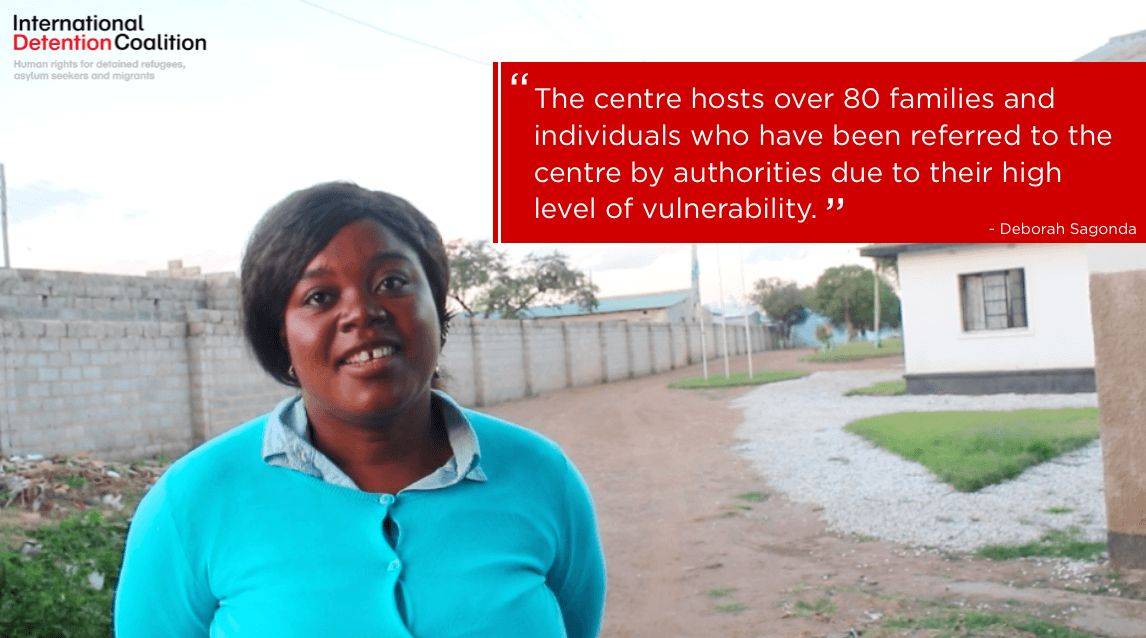
A successful alternative to detention has been highlighted in Zambia.
The alternative is a Lusaka-based transit centre is run by IDC member Action Africa Help Zambia (AAHZ), an implementing partner of the UNHCR. Refugees are housed at the centre pending relocation or resettlement, or while their asylum applications are being processed by the UNHCR.
These identification, decision-making and referral processes are part of an established National Referral Mechanism (NRM) that has been rolled out across Zambia. All categories of migrants are referred to the appropriate authorities and services under the NRM chart and associated Guidelines .
The IDC defines an alternative to detention as any law, policy or practice by which persons are not detained for reasons relating to their migration status. The NRM in Zambia is an example of a successful alternative to detention.
The NRM was developed to provide guidance on the different stages of assistance to vulnerable migrants. It was implemented in 2014 by the government of Zambia in collaboration with IOM, UNHCR and the United Nations Children’s Fund. The NRM process begins with an initial interview and registration of migrants by front-line officers to determine the case-type, recognise vulnerabilities and needs, and possible referral options. It also promotes coordination of national stakeholders for provision of protection in line with national legal frameworks and international best practices.
The governments of Botswana, Malawi and Mozambique are in the process of developing and implementing their country-specific NRMs. The NRM is one of many successful processes that work towards building systems that do not use harmful, expensive and damaging immigration detention.
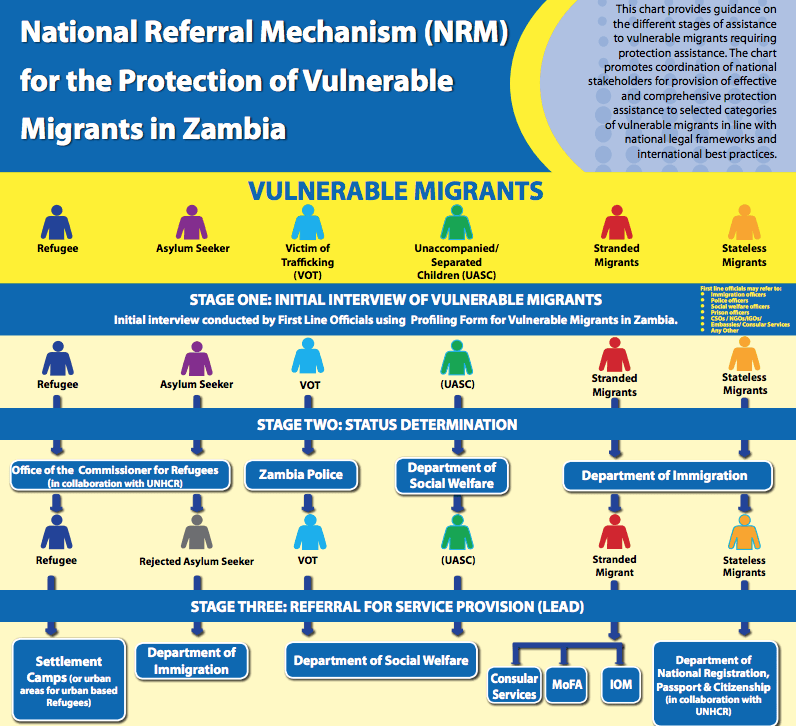
The use of the NRM, Action Africa Help Zambia (AAHZ)’s work and other case studies of alternatives to detention are described in the IDC’s new report: “There are alternatives: Africa”. The report is the second in a series collating examples of systems in Africa that avoid the use of immigration detention.
The latest report contains new descriptions of alternatives to detention currently operating in over 30 African countries. The report will be launched on 26th April 2018 at the African Commission for Human and Peoples Rights (ACHPR)’s 62nd Ordinary Session in Nouakchott, Mauritania. It complements the exiting handbook to prevent unnecessary immigration detention - There Are Alternatives.
The first publication detailing legislation, policies and practices related to immigration detention in six countries: Egypt, Kenya, Libya, South Africa, Tanzania and Zambia is available to download here: “Alternatives to Immigration Detention in Africa, 2015-2016”.
To find out more, contact lead author of the report, Tiffany Shakespeare – [email protected]
See related content: How one little book can lead to a whole lot of change
There Are Alternatives: New Report on Africa
New report coming soon
IDC members and partners in Africa have recognised the importance of information sharing to successfully manage migration without the use of detention. Alternatives to detention include practices, policies and laws that allow all kinds of migrants to live and support themselves in a community, with freedom of movement, while their immigration status is being resolved.
Danielle Botti, Coordinator at the Regional Mixed Migration Secretariat (RMMS), East and Horn of Africa has said that “research and analysis about alternatives to detention, as well as alternatives to unsafe migration, is critical”. RMMS supports agencies with guidance from IOM, UNHCR, DRC, the Swiss Agency for Development and Cooperation (SDC), Intersos, IGAD and the EU delegation to Kenya.
In response to this need, the IDC has set up a research series presenting region-specific case studies of alternatives to detention. The research is intended to encourage civil society and government actors to pilot alternatives, including increasing safe migration pathways that manage and resolve cases in a fair, timely and humane manner.
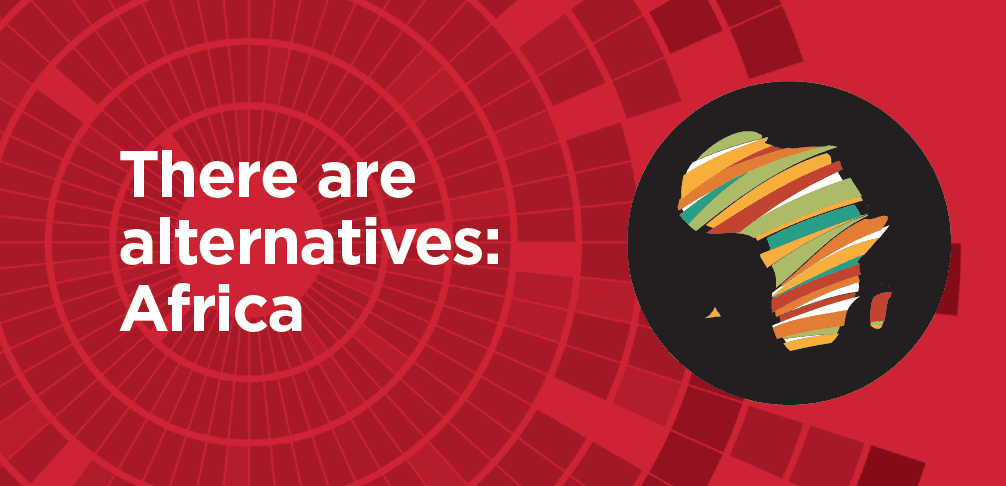
The IDC’s latest report – to be published in April – contains new descriptions of alternatives to detention currently operating in an expanded selection of 32 African countries. The report highlights that unnecessary detention is prevalent in the region. It details the fact that detention is detrimental and costly for both governments and migrants themselves, with alternatives to detention being up to 80% less expensive than immigration detention.
“Understanding more about what risks and circumstances people face at all stages of the journey is important” says Botti.
The countries surveyed in the report include those experiencing “transit” migration, those hosting large numbers of refugees, asylum seekers or irregular migrants, and those with limited resources available to manage such populations. The alternatives described include those implemented to prevent detention at all stages of a migration procedure, including upon arrival, during processing of migration-related claims, or when preparing for departure.
“In the growing study on mixed migration, the conversation is moving towards finding and applying tangible and durable solutions to ensure protection of human rights for people on the move” Botti shared
The IDC is glad to be contributing to this conversational shift, uncovering and promoting alternatives to immigration detention that allow migrants to remain healthy and act as contributing members of the communities in which they settle, pass through or originate from. We applaud the efforts of governments offering registration amnesties to irregular migrants and temporary work permits to asylum seekers and refugees.
The report will be launched on 26th April 2018 at the African Commission for Human and Peoples Rights (ACHPR)’s 62nd Ordinary Session in Nouakchott, Mauritania. The IDC will run a side event on alternatives to detention identified across the African continent that are more humane, less expensive and more efficient at achieving case resolution according to the IDC’s ten-year programme of research.
The first publication in the series “Mapping Alternatives to Detention in Africa” was “Alternatives to Immigration Detention in Africa, 2015-2016” which detailed legislation, policies and practices related to immigration detention, including child detention, and alternatives to detention, in six countries: Egypt, Kenya, Libya, South Africa, Tanzania and Zambia.
To find out more, contact the lead author of the report Tiffany Shakespeare –[email protected]
Report Launch Alongside ACHPR
The International Detention Coalition (IDC) invites you to the launch of our new report and panel discussion on "Alternatives to the use of Immigration Detention in Africa".
The launch will be held on Thursday, 26 April 2018 as a side-event at the 62nd Ordinary Session of the African Commission on Human and Peoples' Rights (ACHPR) in Nouakchott, Islamic Republic of Mauritania.
Time: 12:30 – 14:00
Venue: TBC (within the Palais des Congrès)
Please see the Agenda for more information: Agenda ACHPR 62nd Session Side Event on Alternatives to Immigration Detention
Unfortunately the IDC does not have funding to cover participant's costs but please RSVP here if you are scheduled to attend anyway.
If you would like more details please email: [email protected]

